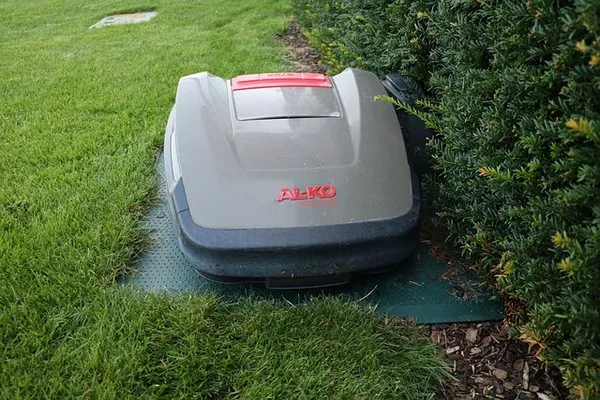When it comes to maintaining a lush and vibrant lawn, investing in a quality lawn mower is just the beginning. Equally important is understanding the fuel requirements of your mower. With various types of gas available on the market, selecting the appropriate fuel can significantly impact your mower’s performance, efficiency, and longevity. In this article, we’ll delve into the different types of gas for lawn mowers, their compositions, and which one might be the best fit for your equipment.
Gasoline:
Gasoline is the most commonly used fuel for lawn mowers and other small engines. It is readily available at gas stations and is relatively affordable. Gasoline typically contains a blend of hydrocarbons derived from crude oil, along with additives to enhance performance and reduce emissions.
One key consideration when choosing gasoline for your lawn mower is the octane rating. Most lawn mowers are designed to run on regular unleaded gasoline with an octane rating of 87. Using gasoline with a higher octane rating is unnecessary and may not provide any tangible benefits.
Another factor to consider is the ethanol content of the gasoline. Ethanol, which is derived from corn, is often added to gasoline as an oxygenate to reduce emissions. However, ethanol can be corrosive to small engines, particularly those with older fuel systems. It can also attract moisture, leading to phase separation and engine damage. To mitigate these issues, it’s recommended to use gasoline with no more than 10% ethanol (E10) for lawn mowers.
Ethanol-Free Gasoline:
For those concerned about the potential drawbacks of ethanol-blended gasoline, ethanol-free gasoline offers a viable alternative. Ethanol-free gasoline, also known as pure gas or non-ethanol gas, contains no ethanol additives. As a result, it is less corrosive and less likely to attract moisture than ethanol-blended gasoline.
While ethanol-free gasoline may be more expensive than regular gasoline, its benefits may outweigh the additional cost, especially for older lawn mowers or those with sensitive fuel systems. Additionally, ethanol-free gasoline typically has a longer shelf life, making it a better option for seasonal equipment that may sit idle for extended periods.
It’s essential to note that ethanol-free gasoline may not be available at all gas stations, so you may need to do some research to find a supplier in your area. However, many hardware stores, small engine repair shops, and marinas carry ethanol-free gasoline for customers with specific fuel needs.
Synthetic Fuels:
Synthetic fuels, also known as alkylate fuels or alkylate petrol, are a newer alternative to traditional gasoline for small engines. These fuels are formulated using synthetic or highly refined hydrocarbons, resulting in a cleaner and more stable product compared to conventional gasoline.
One of the primary benefits of synthetic fuels is their low level of harmful impurities, such as sulfur and aromatics, which can contribute to engine deposits and emissions. As a result, synthetic fuels can help prolong the life of your lawn mower engine and reduce maintenance requirements.
Additionally, synthetic fuels have a longer shelf life than conventional gasoline and are less prone to deterioration over time. This makes them an excellent choice for seasonal equipment that may be stored for months at a time between uses.
While synthetic fuels may be more expensive than traditional gasoline, their superior performance and longevity can ultimately result in cost savings over the life of your lawn mower.
See Also Choosing the Right Fuel for Your Toro Lawn Mower: A Full Guide
Natural Gas and Propane:
In recent years, natural gas and propane have emerged as alternative fuel options for lawn mowers and other small engines. These fuels are cleaner-burning than gasoline and produce fewer emissions, making them environmentally friendly alternatives.
Natural gas is primarily composed of methane and is typically supplied through a utility pipeline. Propane, on the other hand, is a byproduct of natural gas processing and petroleum refining and is stored as a compressed liquid in portable tanks.
Converting a gasoline-powered lawn mower to run on natural gas or propane typically requires the installation of a conversion kit, which includes a specialized carburetor or fuel injector. While the upfront cost of conversion may be higher, the long-term savings on fuel and maintenance costs can be significant.
Additionally, natural gas and propane are less volatile than gasoline, reducing the risk of fuel spills and fire hazards. However, it’s essential to handle these fuels with care and follow proper safety procedures when refueling or storing propane tanks.
Conclusion:
Choosing the right type of gas for your lawn mower is essential for maximizing performance, efficiency, and longevity. Whether you opt for traditional gasoline, ethanol-free gasoline, synthetic fuels, or alternative fuels like natural gas or propane, each option has its benefits and considerations.
By understanding the characteristics of each type of gas and considering factors such as octane rating, ethanol content, and fuel stability, you can make an informed decision that meets the needs of your lawn mower and helps maintain a healthy and beautiful lawn for years to come.

